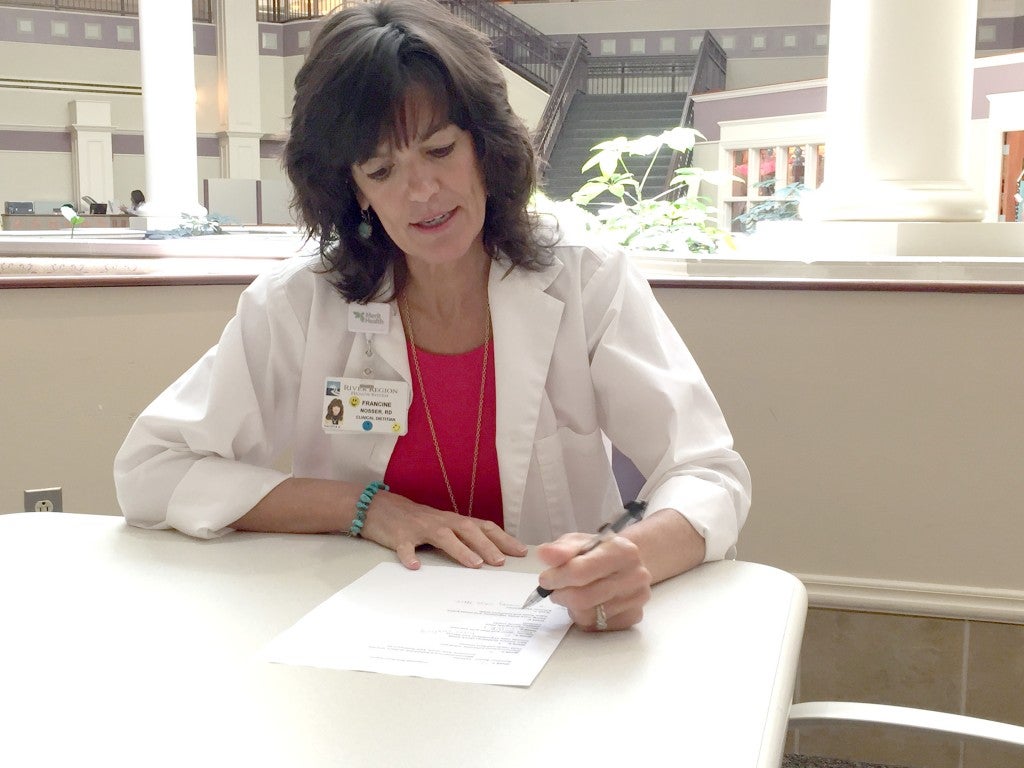Registered dietitian helps kick calories
Published 10:35 am Wednesday, June 8, 2016

- Merit Health River Region dietitian Francine Nosser makes the final changes to her course agenda for her Nutrition 101 class at the YMCA beginning June 14.
People who look to transform their bodies into a healthier version often don’t know where to begin.
With advertisers and marketing strategist pushing fad diets and food myths to the general public, Merit Health River Region dietitian Francine Nosser wants to educate people on the fundamentals of nutrition.
Nosser will teach “Nutrition 101,” a seven-week course on how to eat healthy, at the YMCA beginning Tuesday, June 14 until July 19. Space is limited to 20 people and classes will be held from 10:15 – 10:45 a.m.
“What we decided is that there are some people who are doing well with their fitness and exercise, but they’re just really confused on what to eat,” Nosser said.
Each week will focus on a different topic. Overall, it’ll break down basic nutrition and go over what is a calorie, different nutrients, carbohydrates and fats and how much fluid a person needs.
Nosser said a lot of general information on dieting and nutrition can be confusing to the public, like which fats and sugars are good for the body.
“It’s really confusing because fruit contains sugar and milk contains sugar and a lot of good foods actually do have natural sugar in them and I think it’s hard for people to differentiate. You can go the same way with the fats,” Nosser said. “A lot of people think they should stay away from fats totally but they are a lot of good healthy fats they should include in their diet.”
With carbohydrates, Nosser said good examples that come to mind are beans, legumes and peas. Any kind of whole grains – rice or pasta – vegetables, white and sweet potatoes are also good carbohydrates.
The YMCA approached Nosser on teaching the class after patrons began asking its staff about nutrition.
“We just got together and talked about what seemed to be the biggest issues and what seemed to be the biggest questions participants at the (YMCA) had,” Nosser said.
Other special topics in Nosser’s class touch on dietary guidelines, grocery shopping, food myths and how to properly read a label. She suggests to grocery shop around the perimeter of the store and venture into the aisles for whole grain needs.
Without giving too much of Nosser’s curriculum away, she said the most important aspect of a reading a label is its portion size and identifying which ingredients comprise a good deal of the product.
“A lot of times on a package it might say, three portions, but you might be looking at the calories and fat and say ‘Oh, this is only 130 calories,’” Nosser said. “If you look at the first few ingredients in a product those are the ones it has the most of by weight.”





